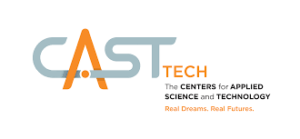 I wonder about the following question: are entrepreneurship and traditional education totally at odds? Can practical business skills only be learned on the job? Or can we teach this at school? And if at a school, how do we teach the key skills of launching, running and succeeding in business in a school setting?
I wonder about the following question: are entrepreneurship and traditional education totally at odds? Can practical business skills only be learned on the job? Or can we teach this at school? And if at a school, how do we teach the key skills of launching, running and succeeding in business in a school setting?
In early March, I attended my first Pitch-A-Kid competition, which struck me as a highly plausible learning tool for school age students to gain insight into startups.
Equally important to this plausible experiment in business skills-building was the setting, the open presentation space within CAST Tech, a project-based learning school founded in 2017 to address precisely my questions above.
Amir Samandi, Mentor Coordinator and Partnerships Director for CAST Tech, the in-district charter school in San Antonio ISD focused on business, tech, and design, invited me to this Pitch-A-Kid competition.
 I sat directly behind Timiera Jackson and MaryJo Armas, aged 15 and sophomores at CAST Tech. They, along with four others from their tenth grade class in Entrepreneurship, formed the judges for Pitch-A-Kid.
I sat directly behind Timiera Jackson and MaryJo Armas, aged 15 and sophomores at CAST Tech. They, along with four others from their tenth grade class in Entrepreneurship, formed the judges for Pitch-A-Kid.
Pitch-A-Kid takes the traditional venture capital model – young startup founders pitching to older capitalists – and flips it on its head.
Instead, seven startup founders – adult entrepreneurs in their first few years of business – compete to win over the high-school age judges. Like most startups, these seven businesses still seek the right mix of concise pitch, customer experience, staffing, and of course capital and a steady path to profitability. These startup founders don’t have it all figured out yet. But that’s ok. They are pitching to the high school kids – the judges in the contest – to develop their own skills.
We heard pitches from:
- Two different marketing and lead-generation startups using artificial intelligence and chat-bots.
- An alternative finance company providing short-term loans through payroll
- A primary-care, AI-driven, mobile app for diagnosing dementia early and cheaply
- An improved-design meditation cushion
- A veteran-workforce concierge car service for service stations. and;
- An experiential-learning app for managers to design a customer-service experience.
Some pitches I understood the unique value proposition and potential path to profitability. Some pitches I just couldn’t see it. I was just happy none mentioned Cannabis or the Blockchain, the buzziest buzzwords of the 2018 startup scene. Thank goodness for 2019. I guess AI is still the third buzziest word.
The high school sophomore judges made their own evaluations and scored the pitches themselves, to determine the contest winner. Ideally, as well, they absorbed the importance of public speaking, organizing complex ideas while sticking to plain language, and the startup problem of metaphorically flying the plane while simultaneously building it at 30,000 feet.
 The questions and comments from high school judges echoed my own thoughts.
The questions and comments from high school judges echoed my own thoughts.
“Have you considered outsourcing, to bring costs down?” one judge asked the meditation-cushion manufacturer.
“What are your profits?” another judge asked the customer-service app founder. Great question.
“I don’t understand your business,” I heard one of the sophomores query the AI-driven lead-generation company. I had to agree with her.
Mike Millard, the founder of Pitch-A-Kid, kept the presenters to their strictly enforced 5-minute pitch, followed by another time-limited Q&A session afterwards.
Perhaps true to his mission and style, Millard’s chief timekeeper for the event was his primary-school age daughter Audrey, who he credits with inspiring the idea for Pitch-A-Kid through her own inquisitiveness around one of Millard’s own startup plans.
The benefits flow in both directions from Pitch-A-Kid. Startup founders get a chance to hone their pitch for a critical audience. They get to learn, directly through questions from teens, which part of their story is the weakest, and which part resonates.
CAST Tech
The fact CAST Tech brought in Pitch-A-Kid is no accident. Samandi described the challenge traditional schools face in teaching business and entrepreneurship. His mission, and that of his entire school, directly addresses that.
Says Samandi: “In my experience, I was in a classroom for 6 years.
 The public school environment can be a bit bureaucratic. For example, if a kid wants to sell a candy bar, that breaks the rules. That stifles creativity and entrepreneurship. It makes it hard in that environment for entrepreneurial thinking to thrive. The environment really promotes conformity.”
The public school environment can be a bit bureaucratic. For example, if a kid wants to sell a candy bar, that breaks the rules. That stifles creativity and entrepreneurship. It makes it hard in that environment for entrepreneurial thinking to thrive. The environment really promotes conformity.”
Samandi mentioned that many of the sophomores in the Entrepreneurship class judging at Pitch-A-Kid had participated in Startup Week in October, themselves pitching adults in the local tech scene. But as Samandi says, much of CAST Tech’s approach by necessity is to “flip the script” on traditional learning, to foster entrepreneurship.
Samandi told me: “CAST Tech reimagines school from the bottom up. We are asking – how do we make school an entrepreneurial environment? If we’re going to make business, tech, and design the focus, you’re really going to have to open up.”
It’s a cliché – that probably has some truth to it – that the traditional school process discourages entrepreneurship. Breaking the rules? Thinking outside the standardized test? Trying something that very likely will fail the first few times? Specifically disregarding received wisdom and undermining the old way? These are all keys to succeeding in entrepreneurship and fast-moving businesses, but these behaviors are total transcript-crushers in a traditional educational setting.
On the other hand, traditional schooling rewards skills that would be career-destroying in many businesses: Stay in neat rows, stick to your own lane. Remain silent. Work alone for long periods of time, quietly producing long-form texts based on classic ideas from 20, 50, or 150 years ago. What are doing – training kids for a monastic life?
You won’t learn the “move fast and break things” mantra of Silicon Valley in a traditional school.
A project-based learning school like CAST Tech trying to “flip the script” strikes me as a difficult and worthwhile, project.
A version of this post ran in the San Antonio Express-News and Houston Chronicle.
Post read (169) times.





